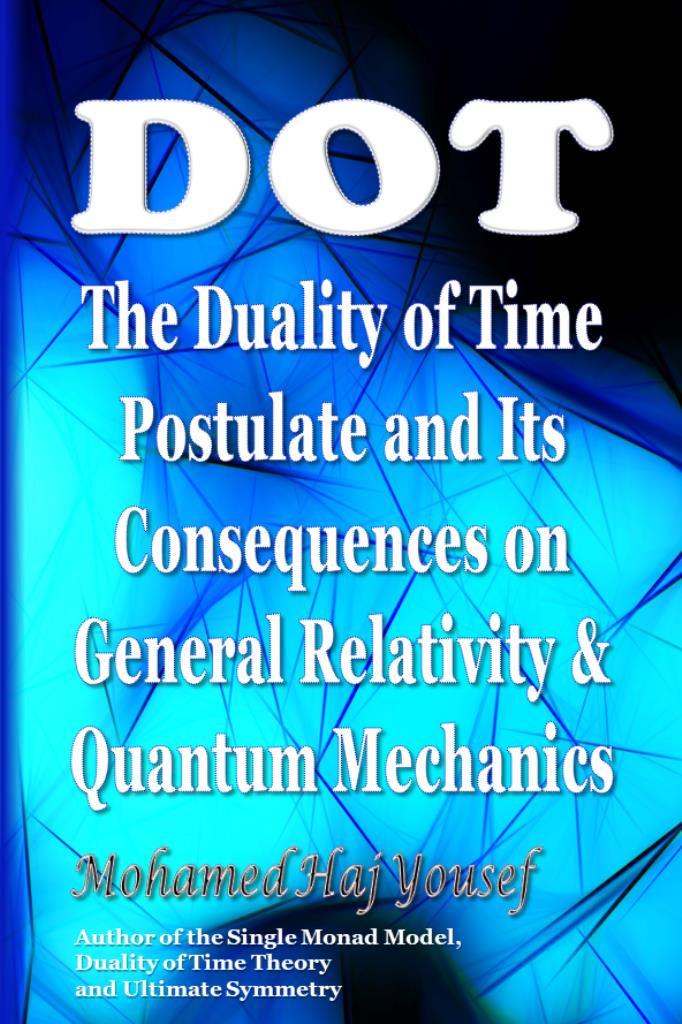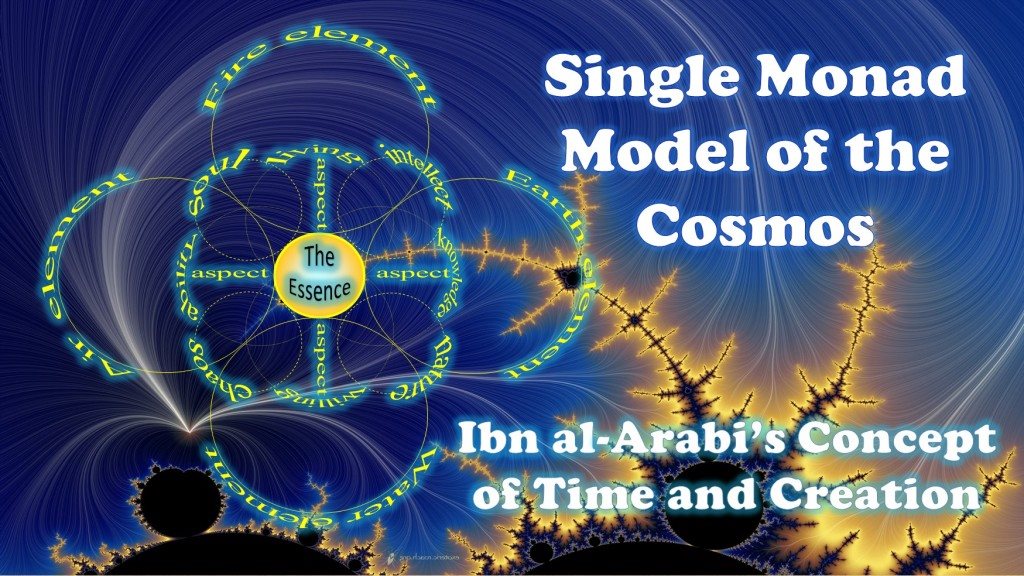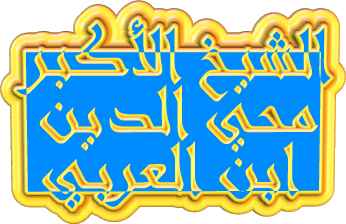Most of these introductory articles are exracted from Volume I of the Single Monad Model of the Cosmos: Ibn al-Arabi's View of Time and Creation... more on this can be found here.
The Single Monad
Generally jawhar signifies everything that exists in reality. Literally it originally meant 'jewel', but in this technical sense borrowed from the physical theory of kalam theology, it means 'substance'. In a very different philosophical context, the same Arabic word was used to translate the first of the ten Aristotelian categories already discussed in section II.1. In English, the word 'monad' - which we will regularly use here for jawhar - is derived from the Greek monados, and it means 'ultimate, indivisible unit'. It was used very early by the Greek philosophers of the doctrines of Pythagoras, and it was also used later, in a very different way, by the neo-Platonists to signify the One: thus God is described as the 'Monad of monads'.[1]
Like the neo-Platonists, Ibn al-Arabi sometimes uses the term al-jawhar (monad) in this higher theological sense to refer to 'the one', 'the essence', 'the real' (not 'the Real' as a divine Name of God, but 'the real-through-whom-creation-takes-place', as discussed further below) and the origin of everything in the world. However, in such cases he does not seem to refer directly to the highest, transcendent dimension of 'God', but rather to the 'Universal/First Intellect' or the 'Pen' [II.675.6], who is also the 'Perfect Human Being'.
On the other hand, although in this theological or cosmological sense the term al-jawhar ordinarily refers to the one real essence of the world (of all creation), Ibn al-Arabi also sometimes uses the same term in the plural form (jawahir) to refer to the essences or souls/spirits (al-nufus al-natiqa) - or more precisely, to the 'partial intellects' (al-‘uqul al-juz’iyya, in contrast with the Universal Intellect, al-‘aql al-kulli, that is their origin) - of human beings who are the perceivers of the world. Even more generally, he sometimes uses it to refer to any entity (even inanimate ones) in the creation, whether angels, jinn, humans, animals, plants or metals. In this latter more generic sense he considers that everything in creation has a substance which is its monad (jawhar) and a particular form (‘arad) which is its appearance.
These very different dimensions and usages of the term ‘monad’/jawhar, however, are also intrinsically linked in Ibn al-Arabi’s cosmology, since he argues that all the monads of the world are created by, and are therefore the 'images' (reflections, shadows, etc.) of the one Single Monad. Thus in that larger perspective of creation, they are nothing but different images of this one Single Monad that in reality may alone be described as having real existence [III.452.24].
======
[1] See EP, 'Monad and Monadology', vol.5: 361-3.
... ctive of creation, they are nothing but different images of this one Single Monad that in reality may alone be described as having real existence [III.452.24]. ====== [1] See EP, 'Monad and Monadology', vol.5: 361-3. Read Other Books: The Single Monad Model of the Cosmos: Ibn Arabi's View ...
... , etc.) of the one Single Monad. Thus in that larger perspective of creation, they are nothing but different images of this one Single Monad that in reality may alone be described as having REAL EXISTENCE [III.452.24]. ====== [1] See EP, 'Monad and Monadology', vol.5: 361-3. Read Other Boo ...
... in the plural form (jawahir) to refer to the essences or souls/spirits (al-nufus al-natiqa) - or more precisely, to the 'partial intellects' (al-‘uqul al-juz’iyya, in contrast with the Universal Intellect, al-‘aql al-kulli, that is their origin) - of human beings who are the perceiv ...
... ndence Read this short concise exploration of the Duality of Time Postulate: DoT: The Duality of Time Postulate and Its Consequences on General Relativity and Quantum Mechanics ...
... ndence Read this short concise exploration of the Duality of Time Postulate: DoT: The Duality of Time Postulate and Its Consequences on General Relativity and Quantum Mechanics ...
... its (al-nufus al-natiqa) - or more precisely, to the 'partial intellects' (al-‘uqul al-juz’iyya, in contrast with the Universal Intellect, al-‘aql al-kulli, that is their origin) - of HUMAN BEINGS who are the perceivers of the world. Even more generally, he sometimes uses it to refer ...
... rally it originally meant 'jewel', but in this technical sense borrowed from the physical theory of kalam theology, it means 'substance'. In a very different philosophical context, the same Arabic word was used to translate the first of the ten Aristotelian categories already discussed in ...
... otelian categories already discussed in section II.1. In English, the word 'monad' - which we will regularly use here for jawhar - is derived from the Greek monados, and it means 'ultimate, INDIVISIBLE UNIT '. It was used very early by the Greek philosophers of the doctrines of Pythagoras, ...
... here . The Single Monad Generally jawhar signifies everything that exists in reality. Literally it originally meant 'jewel', but in this technical sense borrowed from the physical theory of KALAM THEOLOGY , it means 'substance'. In a very different philosophical context, the same Arabic wor ...
... this can be found here . The Single Monad Generally jawhar signifies everything that exists in reality. Literally it originally meant 'jewel', but in this technical sense borrowed from the PHYSICAL THEORY of kalam theology, it means 'substance'. In a very different philosophical context, ...
... I.1. In English, the word 'monad' - which we will regularly use here for jawhar - is derived from the Greek monados, and it means 'ultimate, indivisible unit'. It was used very early by the Greek philosophers of the doctrines of Pythagoras, and it was also used later, in a very different w ...
... in this theological or cosmological sense the term al-jawhar ordinarily refers to the one real essence of the world (of all creation), Ibn al-Arabi also sometimes uses the same term in the PLURAL FORM (jawahir) to refer to the essences or souls/spirits (al-nufus al-natiqa) - or more preci ...














